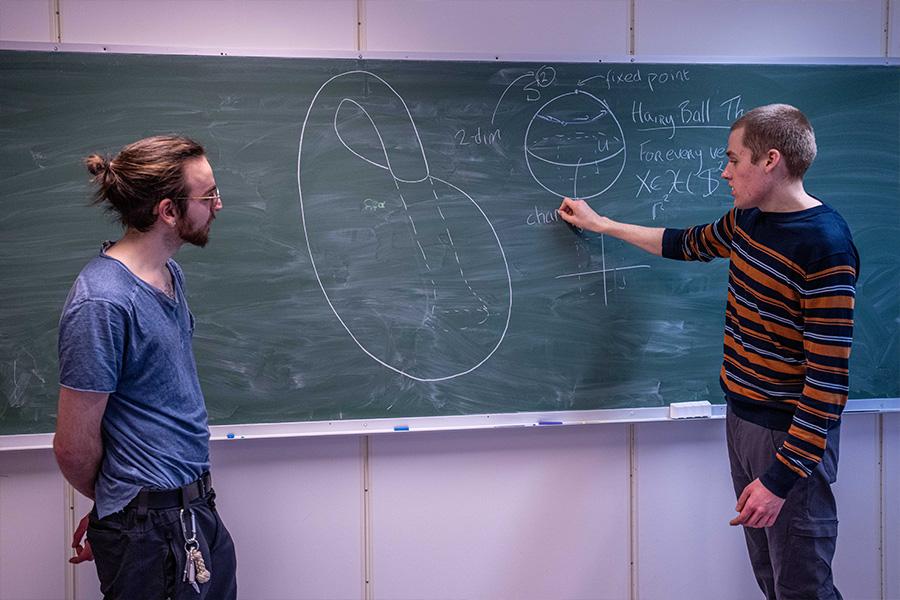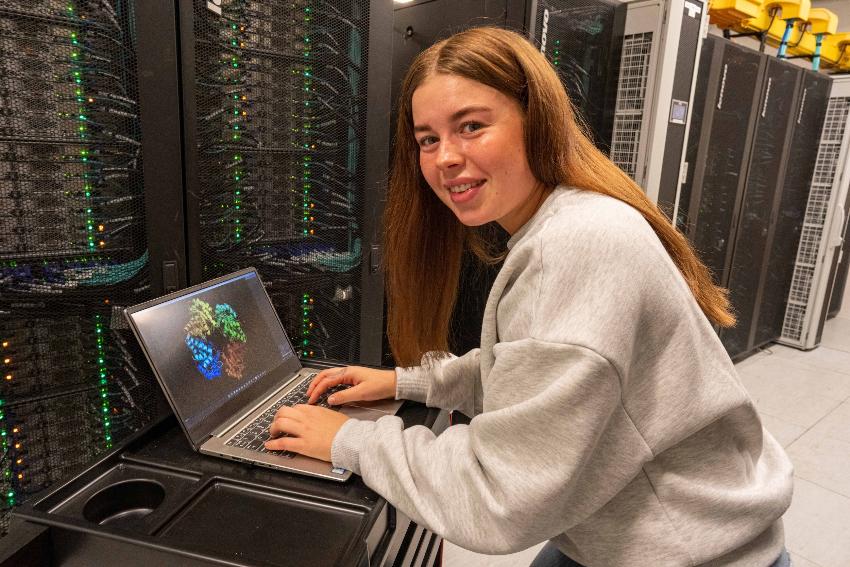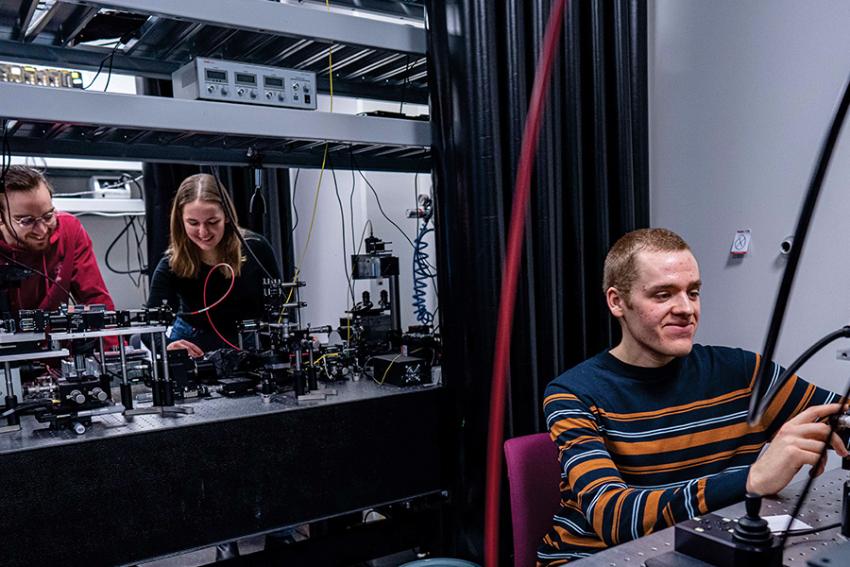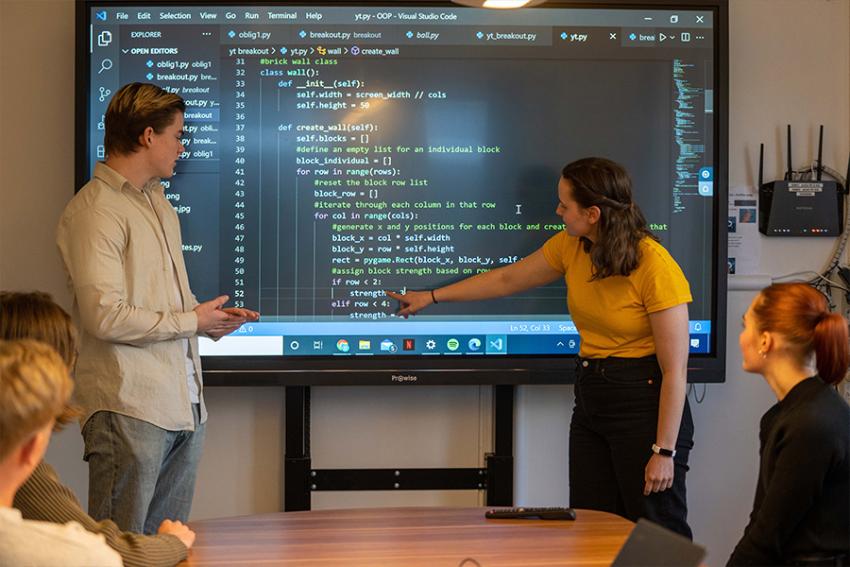Join an international master’s in Mathematical Sciences at UiT, where you’ll specialize in topics like algebra, geometry, statistics, and complex systems. Study in a close-knit, research-active department with strong student–faculty interaction. With courses in English and exchange opportunities, this program prepares you for global careers in academia, industry, or data-driven innovation.
Bachelor´s degree (180 ECTS) in mathematics, statistics, physics or equivalent degree
The education must contain a specialization in mathematics and/or statistics corresponding to at least 80 ECTS.
Applicants must have a minimum grade average comparable to a Norwegian C (3.0) in the ECTS scale, see the UiT webpage for International admissions for more information on how the point average is calculated.
Applicants with education from non-Nordic countries must document English language proficiency. You will find more information on English language requirements on the UiT webpage for International admissions.
Planned number of admissions spring 2026 (nordic applicants):
5 places
Planned number of admissions fall 2026 (all applicants):
5 places
Applicants from Norway or Nordic countries:
Her finner du all informasjon knyttet til søking og opptak.
Applicants within EU/EEA/Switzerland (except the Nordic countries):
You will find more information about admission for EU/EAA applicants here.
Applicants outside EU/EEA/Switzerland and the Nordic countries:
- Non-EU students must be prepared to pay tuition fees.
- You will find more information about admission for Non-EU/EEA applicants here
- Nordic applicants: 4010
- EU / EEA / Switzerland applicants applicants: 7100
- Non-EU/EAA applicants: 2003
Program description
The academic contents of the program are geared towards modern issues in mathematics and statistics, and towards the appliance of mathematics and statistics in technology and other natural sciences. The candidates will gain relevant skills within programming, data processing, analytical problem solving and quantitative analysis.
The master´s program consists of 30-40 ECTS in specialization courses and up to 20 ECTS in elective courses. The mandatory courses are 10 ECTS in Introduction to mathematical research. The master program concludes with a master’s thesis of 60 ECTS.
Examples of course combinations for students with interests in applied mathematics, differential geometry, algebra and statistics are found in the Study plan below.
Courses from other Universities, both national and international can be included in the study program.
Learning outcomes
After completing the study programme, the candidate will have achieved the following learning outcomes:
Knowledge
The candidate:
• has advanced knowledge within mathematical areas such as statistics, algebra, geometry or applied mathematics
• has solid knowledge about fields close to the chosen main area
• has sufficient knowledge of mathematics to teach in senior high school
• has solid knowledge about fields close to mathematics and statistics, such as physics or computer science
• has thorough knowledge of mathematical or statistical methods in theory and practice and can analyze academic problems on the basis of traditions in the academic field
• can apply mathematical or statistical methods in new areas of natural and social science
Skills
The candidate:
• can enter complicated problem issues, uncover structures and formulate precise problems, find suitable analytical and/or numerical solution methods, and interpret the solutions
• has good practical skills in using relevant programming tools
• can use existing literature in an active way to understand the work of other scientists, and as support to solve own mathematical problems
• can use mathematical or statistical methods in theory and practice, and make an independent judgment of the applicability of theory and models for a given problem
• can carry out an independent, limited research project under supervision and in accordance with applicable norms for research ethics in the mathematical sciences
General Competence
The candidate:
• has solid knowledge of a broad variety of mathematical and statistical methods and techniques for analysis and problem solving
• has acquired good theoretical insight and the ability to apply mathematical theory, methods and techniques to solve problems
• possesses necessary qualifications for work within industry, technology, science, information technology, and schools.
• can apply knowledge within mathematics and statistics on problems and questions arising within social and natural sciences
• can cooperate in an interdisciplinary way with other specialists
• can find precise and scientific formulations, in oral and written language
• can do independent scientific work and formulate the contents of the work within the framework of the terminology of mathematics and statistics
• can make knowledge-based judgments on general scientific issues and communicate these in public.
• can contribute to new thinking and innovation processes in the field of mathematics and statistics
Job prospectives
Through the program, the students will acquire broad competence that qualifies them for work in different areas and sectors. They train in problem-solving using systematic and analytical methods, which will make them attractive candidates for research, development and management. There are development and innovation projects that require competence in the mathematical sciences in renewable energy, climate adaptation, information technology, economics, insurance, finance and banking, biotechnology and medical technology.
There is an increasing need for personnel who can process and analyze data, and our society sees a growing demand for competence in modeling and analyzing complex problems within different sectors and fields.
Degree Name
Master of Science in Mathematical Sciences.Access to further studies
The study program qualifies for PhD studies, for instance the PhD program in Science at UiT.
Related professions
Studieplan
Language of instruction
Instruction, syllabus and examination is given in English.
Teaching and assessment
The courses in the study program mostly consists of lectures, seminars and exercises.
All academic staff who teach the study program are active researchers in various research projects. The courses are based on relevant research and are related to the department’s research activity. Special curriculums and the master's thesis are supervised on an individual basis by the department's academic staff.
Form of assessment varies between portfolio assessments, home exams, reports, oral and written exam. In some courses, mandatory assignments must be approved for exam access.
After submitting the master's thesis, it is assessed, and normally within 6 weeks an oral presentation and examination is held. This may influence the final mark.
There are several possibilities for exchanges abroad. The exchange period depends on your individual study plan, and should be planned in collaboration with the student advisor and the student’s supervisor.
Destinations for studies abroad

Line Strand Karlsholm
Rådgiver IMSGlen Matthew Wilson
Førstelektor / UndervisningslederOther studies you may like
Vil du vite hvordan det er å være student ved UiT? Følg @uitstudent på Instagram eller TikTok, hvor studenter deler fra livet på universitetet. Her får du praktiske tips om studier og studentliv, nyttig informasjon om campus og muligheten til å stille spørsmål om alt du lurer på.
For mer informasjon om studietilbud, forskning og muligheter direkte fra UiT, kan du følge @uitnorgesarktiske på Instagram eller TikTok. Her finner du offisielle oppdateringer og innsikt i hva universitetet har å tilby.






